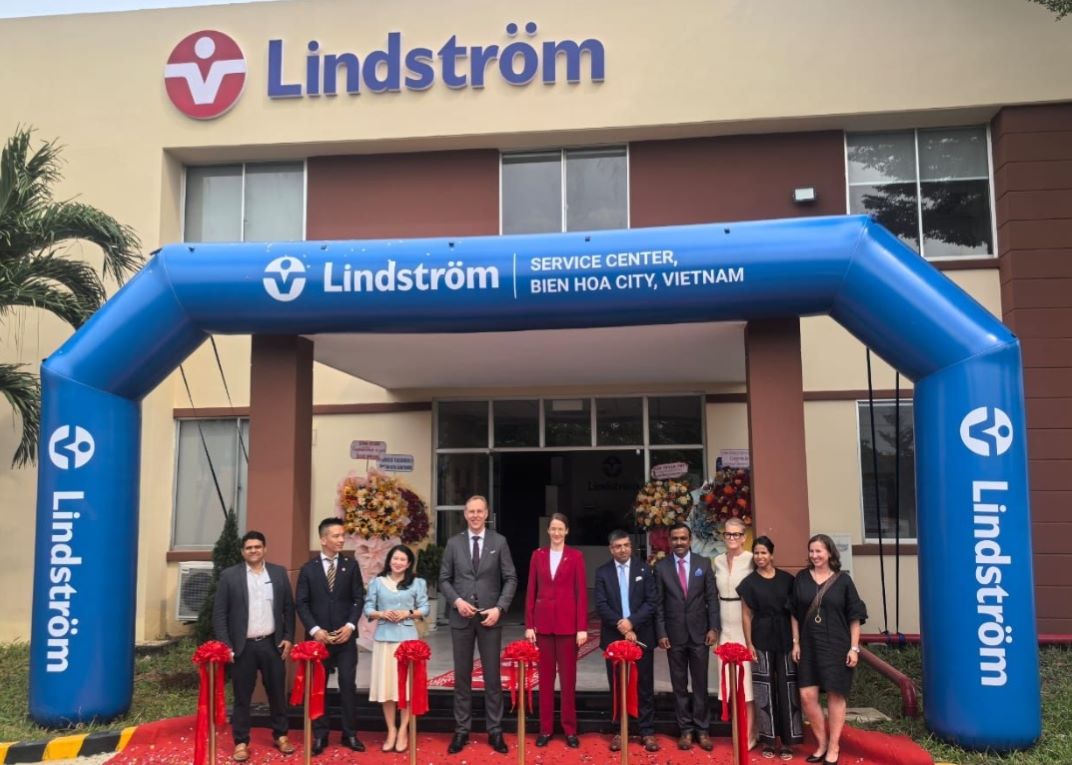
Courtesy- wikimedia
According to the 2017 Global Health Care Sector Outlook by Deloitte, healthcare spending by 2020 is expected to increase in the range from 2.4 to 2.7% for different regions, with this expense as a percent of GDP also rising. Further, 50% of this expenditure will be on what are arguably lifestyle related diseases. The demographic of the world population also continues to change, resulting in an increasing trend of old-age ailments. United Nations Sustainable Development Goals related to universal and accessible healthcare will also pose a significant cost to public exchequer. While countries strive to increase affordable healthcare coverage on one hand and to reduce healthcare delivery on the other, all this poses a serious challenge in maintaining service levels, let alone improving them.
The Response
The response to this challenge may lie in the advent of healthcare technology, faster commercialization of proven medical and biotech research, and innovative funding and delivery models that provide quicker and cheaper access to all these. In these interesting times, being an entrepreneur in the healthcare space can therefore be a very rewarding personal and professional experience. However, it comes fraught with its own set of harsh and demanding challenges.
Executing a vision from scratch not only requires an exemplary amount of hard work and an unwavering focus towards one’s goals, but also an equally keen understanding of the business and an organizational acumen to navigate the curveballs that this will throw at the founding team. Thankfully, help is also increasingly available now – as governments, established organizations and successful serial entrepreneurs all realize that supporting these new breed of start-ups is what will fuel the next stage of economic and business growth across sectors.
In recent times therefore, a number of business incubators and accelerators have come up alongside the increased entrepreneurial activity that is being observed, thus providing a symbiotically beneficial ecosystem that makes it extremely conducive to plunge into new ventures presently. Some of these incubators and accelerators have been spun off from, or are subsidiaries of, large corporates. These may therefore focus on supporting innovation and technology enablement that helps Business Growth or open New Markets for its parent. Others may be supported by governments, which will then tend to have a Regional or Sectoral Focus, based on the policy and regulation that is being promoted.
The objective may as well be much broader however, but is always fairly transparent in the charter. Other than focussing on ventures that align well with these stated objectives, they also evaluate start-ups and investment opportunities on other parameters such as Team Strength of the founders, Scale of Innovation and its potential to be a disruptive force in the business landscape, Marketability and Scalability of the product or idea so that the financial and operational feasibility is ensured, the Expected Gestation Period and Time to Market the product or service, Strength of the Business Model itself, and also the Potential Return on Investment.
However, even if chosen, this help obviously comes at a cost, in the form of diluted equity or shared control. It is therefore imperative that a certain level of cost-benefit analysis be undertaken, both by entrepreneurs as well as incubators, before any partnership is forged. For ensuring that a potential association will be beneficial, it is particularly important for ventures to also evaluate it on key business dimensions, such as the extent and scope of the available Financial Support that may be availed as a direct investment and through syndication, while also considering the future support available during divestment and exit phase, the requisite Management Oversight that can be leveraged for all operational and organization aspects while being cognizant of the level of control that may have to be ceded, Synergies that can accrue through access to networks and by enabling relevant partnerships through the frontto-back value chain, and also the level and quality of Mentorship that can be leveraged for relevant experience and knowledge.
Once the mutual benefits are clearly articulated and well understood upfront, partnership can then mean to be the key difference between being successful and otherwise. From aspects such as strengthening business plans and developing goto market strategies, or exploring financing options, to facilitating team building and organizational growth, or helping navigate new segments and geographies, or even providing experienced mentors to deal with the plethora of business or operational problems that may arise in bringing the idea to fruition - these incubators and accelerators can stand alongside the entrepreneur at each step of the journey. They partner by not only providing investment but also by putting their own collective experience and brand power behind the idea, to ensure success of the new enterprise.
The Options
While there are a number of incubators that are open to evaluating and investing in ideas, listed below are a few that have a stated objective of supporting ventures in the healthcare sector in Asia:
Biopolis is Singapore government’s initiative to provide a co-located facility to reduce ramp-up time and promote collaboration between researchers in both private and public sectors. It enables access to state-of-the-art facilities, scientific infrastructure and specialised services, as well as co-located facilities - allowing companies to cut R&D costs significantly and speed up the development lifecycle.
Clearbridge Accelerators is focussed on healthcare, info-security and technology sectors. It has a stated track record in leading early stage investments, and backing entrepreneurs with breakthrough innovations and businesses. The team consists of serial entrepreneurs with domain expertise, extensive network and operational experience in key markets such as the US, China, Japan and Australia. It has a public-private partnership with the Singapore Government, and manages a S$ 40 million scheme to invest in life science companies (SPRING SSC BSA), and an incubator scheme that invests up to S$ 1 million for Seed-stage companies (NRF TIS). Headquartered in Singapore, it aims to grow Asian companies globally, as well as to support international companies entering key Asian markets.
Trendlines Medical Singapore has been established by the Trendlines Group, an Israeli medical and agricultural investor, and the healthcare supplier B. Braun Melsungen. It focusses on incubating early-stage healthcare companies across APAC by discovering, investing in, incubating and providing a number of support services aimed at developing Singapore-based start-ups that are building novel medical devices and technologies with a view to succeed in the global market. It aims to partner closely with the entrepreneurs: partnering with them right from idea creation, through to business development and more. Trendlines Medical Singapore has hopes to effectively leverage the ecosystem in Singapore to grow its portfolio – a strong scientific and research base in world class universities, excellent medical infrastructure, as well as the innovation and entrepreneurial mindset.
Johnson & Johnson Asia Pacific Innovation Center is located in Shanghai with satellites in Singapore, Australia and Japan, extending its network in life sciences hotspots around the globe. The Center houses local science and technology experts and also has deal-making capabilities focussed at identifyingand developing promising early-stage opportunities across the J&J’s three focus areas: Pharmaceuticals, Medical Devices & Diagnostics and Consumer healthcare products.
Venturecraft is a global growth / latestage venture capital provider, with a presence in APAC. It is aimed at powering innovations in areas of medical technologies, biotech and digital health, and is also an appointed accelerator under SPRING (Singapore’s sector specific accelerator programme) for MedTech. At one end, it provides seed capital funding to commercialize research outcomes from Singapore’s leading research institutions. At the other end, it also acts an effective conduit for commercialization and market expansion of its network of companies into Asia.
Zuellig Health Solutions is the first innovation centre of Healthcare services provider Zuellig Pharma. Based in Singapore, it plans to invest over S$50 million over the next five years. Given the ecosystem for digital technologies and big data in Singapore, it is on the lookout for healthcare, technology and data specialists here, including development of data, digital and disease management solutions focussed at helping doctors develop more effective treatment plans, supporting patients with chronic conditions and helping payers manage healthcare costs.
Biofactory is a biomedical incubator, basedin Singapore. It focusses on commercialization of innovative biomedical technologies through the lifecycle - identifying, evaluating, nurturing and supporting research sourced from global institutions. It has also established strategic partnerships and close relationships with international distributors, industry leaders and experienced management executives, with an objective of accelerating the time to market of products for addressing unmet clinical needs. It has already spun-off biomedical start-ups in the past.
IBM’s The Watson Center in Singapore has a view that disruptive technologies such as cognitive computing and blockchain are expected to drive dramatic shifts in the not so far future and across industries (from healthcare, to financial services, to tourism). It aims to help clients of all sizes in Asia Pacific lead in shaping the future of their industries. Parkway Pantai, which is amongst the largest integrated private healthcare providers regionally, has partnered with IBM to work at improving patient care and the outcomes in its ICUs.
TNF Ventures is founded by a team of established serial entrepreneurs, with extensive business and investment experience across sectors. It is one of the 14 incubators selected by National Research Foundation for Technology Incubation Scheme (TIS). TNF has an extensive network in Singapore, Asia and America, and has network benefits for ventures that are interested in entering the China market.
HealthStart is India’s first accelerator program dedicated to support start-ups in healthcare industry, with the stated focus areas being digital healthcare, MedTech, Wellness, Disease Management, Fitness and innovative distribution models. Founded by a successful group of global professionals comprising of entrepreneurs, business executives and investment professionals, it already has a number of investments through its incubation/ acceleration and seed investment programs. Additionally, it also has an angel-investment programme.
IAN Incubator was established with the support of Department of Science & Technology (Government of India). It supports entrepreneurs in business planning, mentoring, recruiting their top team, commercializing their technologies, developing their products, getting early seed funding, help in forging partnerships at the national and global level, advice on intellectual property, training and development and many other things. IAN is reputed for its huge network of successful entrepreneurs, domain experts, academicians and experienced professionals.
Khosla Labs was setup by Vinod Khosla and Srikanth Nadhamuni, as an innovation lab focussed on solving large scale problems using technology. Projects are prototyped through in-house design and technology teams, and pilot tested to get feedback and market validation. Based on the traction and business plan, further funding may be available through Khosla Ventures seed fund, with a new company getting spun-off.
Amity Innovation Incubator is also supported by Department of Science & Technology (Government of India). It is a registered ‘not for profit’, consisting of an advisory body having industrialists, venture capitalists, technical specialists and managers. It offers a range of incubation services such as business planning and company setup, legal & IPR assistance, managerial and technology support, etc.
The Conclusion
A significant amount of funding and expertise is increasingly becoming available for the right ideas that can help solve healthcare delivery problems, or improve the quality of service or life of the patients. Convergence of technology, mobility solutions, big data and analytics has further opened up avenues for truly disruptive and innovative approaches to address the cost and accessibility problems in healthcare and life-sciences space. Commercialization of research and faster time to market is also becoming increasingly critical. Governments and organizations are rising up to this opportunity by way of providing regulatory, financial, infrastructure and knowledge support to help enterprising and smart ventures that are likely to rise up to the challenge and succeed in providing tangible solutions. Everyone stands to benefit as a result.
Priyanka Bajpai
priyanka.bajpai@mmactiv.com




